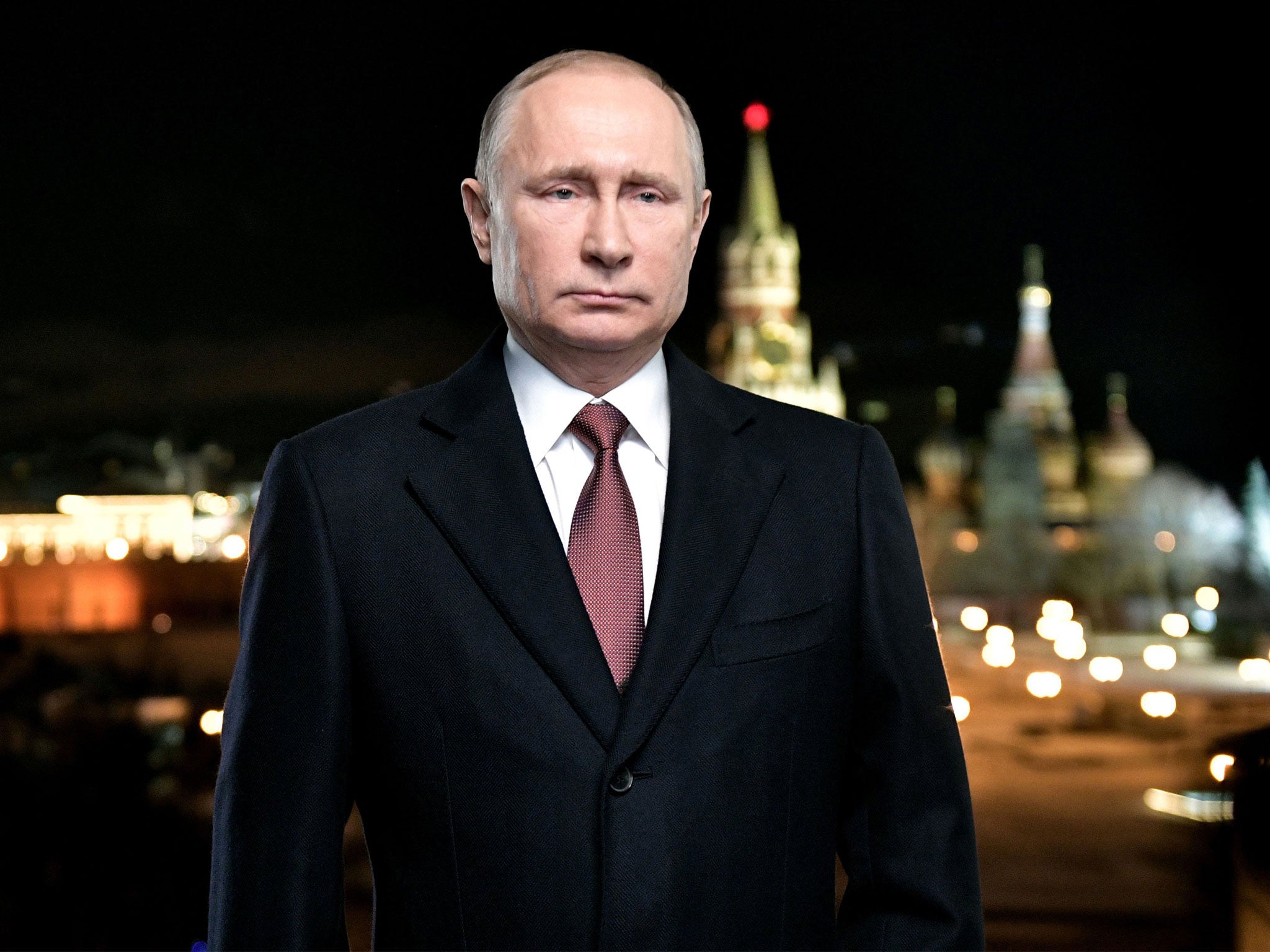Putin doesn’t resemble Stalin – he is more subtle than that
The censorship of The Death of Stalin is a reminder that there’s an inevitability about Russia's confrontations with the West

It was almost as if the current leadership team at the Kremlin had tasked themselves with creating a piece of real-time instalment art parodying their political methods. Mr Putin and his court arranged for a private viewing, naturally, of the hit film The Death of Stalin, so that, just like the dictator that came before him did with movies from Hollywood, he could both enjoy the action and assess its suitability for general release to the Russian people, treated rather as credulous children than grown-ups.
Of course, although (or perhaps because) the film poked fun at the excesses of a brutal dictator who died in 1953, it was considered too sensitive, and too near the bone, for public consumption. It has, therefore, and in the best-worst traditions of Stalinism, been banned.
It is a curious episode that sheds much light on the reality of life in Russia. The parallels with the era of Stalin and the age of Putin have been remarked upon many times, and are striking. There is the compulsive paranoia about America and the West; the deployment of high-tech surveillance, espionage material and propaganda, now known as “kompromat” or “fake news”; the buildup of up of the armed forces, recently highlighted by the chief of British defence staff, Sir Stuart Peach; the territorial acquisitions in Georgia and Ukraine; the bullying of neighbours from Estonia to Turkey; the extension of influence in the Middle East.
Of course Mr Putin is not Stalin. He has not – yet – declared war on an economic class such as the kulaks, not engaged in a murderous campaign of modern day antisemitism, as Stalin was about to embark upon at the moment of his death. Putin’s Russia is a more pluralist, a freer and a more open society than the Soviet Union even under such enlightened leaders as Khrushchev or Gorbachev. It would probably not be in Russia’s national interests to cut itself off from Western money and investment, tourism and technology, because that very isolation under the Stalinist dictum of “socialism in one country” led to the impoverishment and inevitable collapse of the old Soviet empire. Today the only regime that attempts to follow such ideals is North Korea, the last Stalinist state in the world. For all its faults, contemporary Russia is not about to relapse into those hermit ways.
What Mr Putin has done is much more insidious and dangerous. He has created a new model of “tough” authoritarian leadership, one that stresses nationalism, often perverting patriotism for its own ends, one that blames foreigners for nation’s ills, and one where dissent is quietly subdued and free speech curtailed rather than simply eliminated. Thus some of the forms and realities of normal democratic life are preserved and human rights and the rule of law intermittently upheld, but against the constant background pressure of corruption and legalised oppression. It is a model of leadership that has been admired, and to a degree emulated, by the likes of Recep Erdogan, Narendra Modi, Viktor Orban and, of course, Donald Trump.
Vladimir Putin is a more subtle and carefully calibrated sort of monster than Josef Stalin. His secret police take more care to cover up their crimes at home, and to find more plausible cover stories for their nefarious activities abroad.
Still, there are strong echoes of Stalin in Mr Putin. The old, famous, Soviet national anthem commissioned in 1943 by Stalin has been reinstated by Mr Putin, while Mr Putin’s recent embrace of the Russian Orthodox Church reminds observers of Stalin’s desperate attempt to re-engage with religion during the Great Patriotic War with Hitler. Like Stalin’s revival of the fancy regalia and military uniforms of the czarist era to motivate the Red Army, so too Mr Putin has restored the Romanov arms and the double-headed eagle as part of Russia’s national identity. Incongruously they live side by side with the red stars and hammers and sickles that still dot the official landscape and the onion domes of Moscow. Soon perhaps some of the statues of Lenin and Stalin, Engels and Marx that were dumped in out-of-town parks after 1991 will make their way back to more prominent locations. Trotsky may have a longer wait for rehabilitation.
Mr Putin’s censorship of this British film, which could have been a far more bloody and horrific tale of Stalin’s crimes against humanity, is, then, a reminder that, on Russia at least, there seems to be some sort of inevitability about the nation’s confrontations with the West, based not so much on ideological differences – though they are real – as much as old-fashioned conflicts of national interests and strategic advantages. It also suggests that Russia has a tendency towards rule by strongmen using fear as their principal political weapon. Stalin may be dead, but Stalinism is showing twitches of life. One wonders what those around Mr Putin will do if their leader one day expires on the floor of his office.
Join our commenting forum
Join thought-provoking conversations, follow other Independent readers and see their replies
Comments
Bookmark popover
Removed from bookmarks